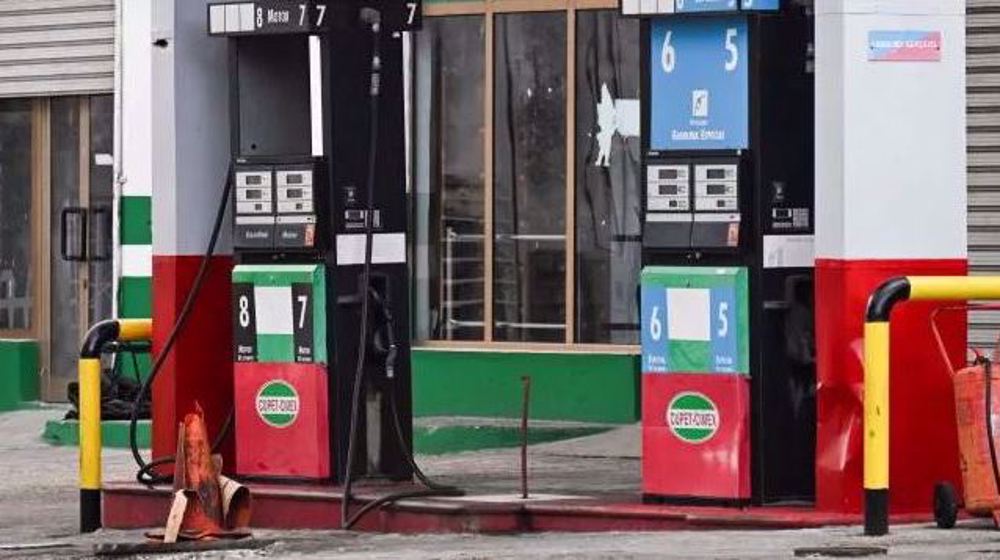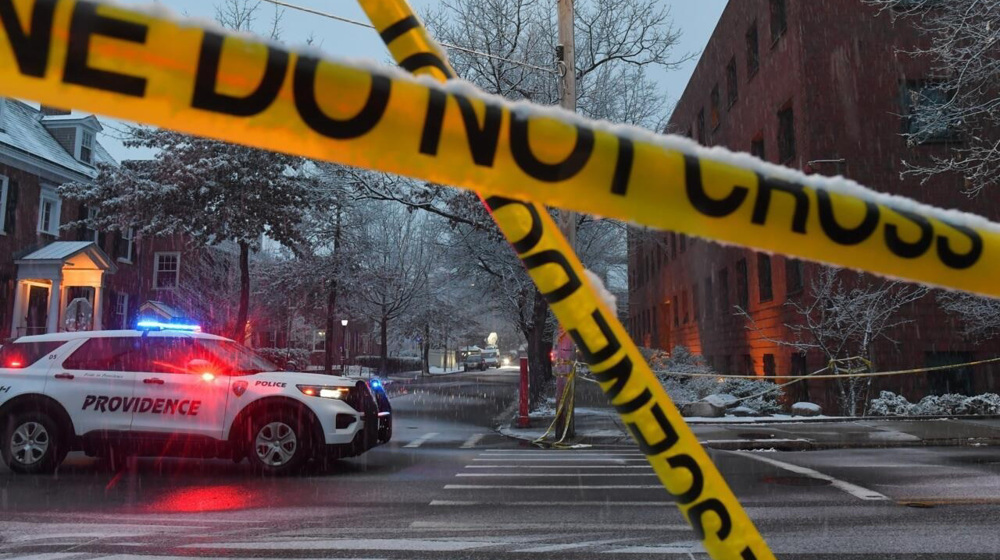Montreal protesters call for justice over death of indigenous woman
Thousands of people have taken to the streets in Canada’s second-most populous city, Montreal, against "systemic racism" in the death of an indigenous woman under controversial circumstances in a hospital this week.
The protesters gathered in the city's downtown on Saturday, demanding justice for Joyce Echaquan, a mother of seven, who died on Monday after seeking treatment for a stomach pain at Joliette Hospital in Montreal.
The demonstrators were shouting "Justice for Joyce!" and "Racism is a virus.”
They were calling for the government to acknowledge the existence of systemic racism in Quebec Province and to take action to stop the discrimination indigenous people face.
Several speakers in the rally said the government has tools to act against racism, but hasn't put those into practice.
They were referring to a government commissioned report that found last year indigenous people faced systemic discrimination in public services across Quebec.
The Viens Commission said “prejudices against Indigenous peoples remain very widespread in interactions between caregivers and patients.”
Quebec’s health minister said last week that he had met with Paul-Emile Ottawa, chief of Atikamekw of Manawan, — a First Nation community in Quebec — to discuss the commission’s recommendations as it pertained to the provincial healthcare network.
“We need to put necessary actions in place so that a situation like Joyce Echaquan’s never happens again,” said Christian Dube.
Echaquan, a woman from Atikamekw of Manawa, captured a video from her hospital bed on her cell phone and posted to Facebook, just hours before her death.
In the video, she is heard calling for help and screaming in pain, as two hospital staff insult her.
Echaquan’s family vowed on Friday to sue the hospital, saying that her death was the result of systemic racism in the country.
A lawyer representing her family, Jean-Francois Bertrand, said they were also filing a complaint with a provincial human rights commission and making a claim with a provincial body (IVAC) that investigates and offers compensation to victims of criminal acts.
The hospital fired a nurse and a nursing support staff member involved in the incident, according to local media.

Prime Minister Justin Trudeau admitted on Wednesday that the incident was "another example of systemic racism" in the country.
Grand Chief of the Assembly of First Nations Quebec and Labrador, Ghislain Picard, however, blamed the government for the racial incidents in Canada.
He said that racism was "very often the fruit of government policies which lead to systemic discrimination.”
Conservative Leader Erin O’Toole also criticized the government, saying, “Indigenous communities need the prime minister to start to work.”
“Why no action in regards to health from the Truth and Reconciliation Commission?” he said.
Canada has, in recent years, been coming to terms with racial injustice suffered by its indigenous people, who make up about 5 percent of a population of nearly 37 million.
According to an investigation last year, the country was complicit in "race-based genocide" against indigenous women.
It said indigenous women were 12 times more likely to be killed or to disappear than other women in Canada.
Quebec Province also published its own report last year, finding that it was "impossible to deny that members of First Nations and Inuit are victims of systemic discrimination in their relations with the public services that are the subject of this inquiry.”
Iran dismisses US 'big lies' on nuclear, missile programs
CIA‑founded NGO admits deploying Starlink satellites for Iran riots
VIDEO | French comedian targeted by Rothschild and Epstein for his shows on Palestine
Iranian commanders warn US not to mistake it for other nations
Daesh leaders reemerge in Raqqah amid growing instability in Syria
Iran rejects UN resolution on Ukraine for lack of support for lasting peace
Leading Iraqi group condemns US threats of aggression against Iran
Iran slams CIA recruitment video, seizes sat gear in diplomat’s luggage













 This makes it easy to access the Press TV website
This makes it easy to access the Press TV website